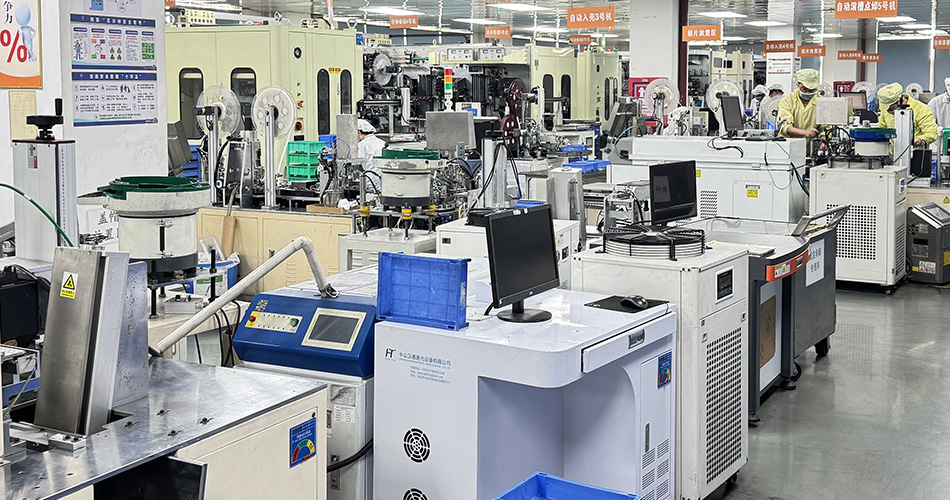In today’s energy storage market, Lithium Iron Phosphate (LiFePO4) batteries are becoming the preferred choice over traditional lead-acid batteries. Whether for solar energy storage, UPS backup, RVs, marine power, or industrial applications, LiFePO4 batteries offer significant advantages. In this article, we compare LiFePO4 vs. lead-acid batteries to help you understand why upgrading to lithium technology is the best choice.
A LiFePO4 (Lithium Iron Phosphate) battery is a type of lithium-ion battery known for its long lifespan, high energy density, and excellent safety. It is widely used in solar power systems, electric vehicles (EVs), uninterruptible power supply (UPS), and industrial energy storage.
A lead-acid battery is a traditional rechargeable battery that has been used for decades in automobiles, backup power systems, and off-grid storage. While lead-acid batteries are affordable, they come with several disadvantages, such as short lifespan, high maintenance, and low efficiency.

Feature | LiFePO4 Battery | Lead-Acid Battery |
|---|---|---|
| Lifespan | 4,000-6,000 cycles (10+ years) | 300-1,000 cycles (2-5 years) |
| Energy Density | High (More power in a smaller size) | Low (Bulky and heavy) |
| Weight | 50% lighter than lead-acid | Heavy and difficult to move |
| Efficiency | 95%+ (Faster charge & discharge) | 70%–80% (Slower charge & discharge) |
| Depth of Discharge (DOD) | 80-100% (Can use most of its capacity) | 50% or less (Frequent recharging needed) |
| Maintenance | Maintenance-free | Requires water refilling & upkeep |
| Environmental Impact | Eco-friendly, no toxic lead or acid | Contains harmful lead & sulfuric acid |
| Safety | No thermal runaway, stable in high temperatures | Risk of leakage, overheating, and explosion |
| Initial Cost | Higher upfront cost | Lower upfront cost |
| Long-Term Cost | Cost-effective due to long lifespan | Frequent replacements make it more expensive over time |
Longer Lifespan = Lower Cost Over Time
LiFePO4 batteries last up to 10 times longer than lead-acid batteries, reducing the cost of replacements and maintenance.
Higher Efficiency = More Usable Power
With a 95%+ energy efficiency, LiFePO4 batteries charge faster and provide more usable power than lead-acid, which wastes more energy.
Lightweight & Compact
LiFePO4 batteries are 50% lighter than lead-acid batteries, making them easier to install and transport.
Safer & More Reliable
Unlike lead-acid batteries, LiFePO4 does not overheat, leak, or explode, even under extreme conditions.
Eco-Friendly & Sustainable
LiFePO4 batteries are non-toxic and recyclable, while lead-acid batteries contain harmful materials that pollute the environment.

Mottcell LiFePO4 batteries are ideal for:
✔ Solar & Wind Energy Storage – Store renewable energy efficiently.
✔ UPS & Backup Power – Reliable emergency power for homes and businesses.
✔ Electric Vehicles (EVs) & Golf Carts – Lightweight and long-lasting.
✔ Marine & RV Power – Perfect for off-grid travel and boating.
✔ Industrial & Commercial Storage – Reduce electricity costs and improve power management.
While lead-acid batteries may have a lower upfront cost, their short lifespan, high maintenance, and low efficiency make them an expensive choice in the long run. LiFePO4 batteries offer superior performance, safety, and long-term value, making them the best investment for modern energy storage needs.
Looking for reliable LiFePO4 batteries? Contact Mottcell today to explore our full range of 3.2V, 3.7V, 12V, 24V, 48V, 5kWh, 10kWh, and 15kWh lithium battery solutions!
Visit: LiFePO4 vs Lead Acid
Reliable 22650 LiFePO4 Battery Manufacturer | Custom Packs & Wholesale
22650 Lithium Ion Battery Manufacturer: Custom Cells & OEM Factory | Mottcell
Lithium Ion Battery Manufacturer: High-Density Cells for Portable Electronics | Mottcell
26700 Li-ion Battery Manufacturer: Custom 4000mAh-5000mAh Cells (OEM/ODM) | Mottcell
Custom Lithium Ion Battery Packs Manufacturer: OEM/ODM Factory Solutions | Mottcell
4860 Rechargeable Battery Manufacturer: Custom OEM Cells & Wholesale Pricing (2026 Certified)
4860 Lithium-Ion Battery: High-Capacity Cells for Industrial OEM (2026 Certified) | Mottcell
Reliable Rechargeable Battery Solutions for Industrial Applications